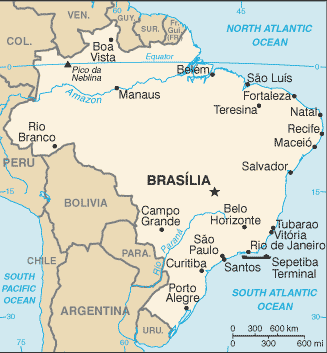 Officials and civil rights advocates in Baltimore are expressing outrage over revelations that a private company has been conducting secret aerial surveillance on behalf of the city's police department—collecting and storing footage from neighborhoods, with no public oversight. Ohio-based Persistent Surveillance Systems has for months been testing sophisticated new cameras afixed to a small Cessna flying over the city, according to an Aug. 23 report in Bloomberg Businessweek, which was given exclusive access to the testing program. Police the following day confirmed the program to the Baltimore Sun, admitting to having collected some 300 hours of surveillance this year.
Officials and civil rights advocates in Baltimore are expressing outrage over revelations that a private company has been conducting secret aerial surveillance on behalf of the city's police department—collecting and storing footage from neighborhoods, with no public oversight. Ohio-based Persistent Surveillance Systems has for months been testing sophisticated new cameras afixed to a small Cessna flying over the city, according to an Aug. 23 report in Bloomberg Businessweek, which was given exclusive access to the testing program. Police the following day confirmed the program to the Baltimore Sun, admitting to having collected some 300 hours of surveillance this year.

 With the Rio de Janeiro Olympics over, the world media are moving on—but the city's poor favela dwellers are left to contend with a wave of murderous police terror. This was
With the Rio de Janeiro Olympics over, the world media are moving on—but the city's poor favela dwellers are left to contend with a wave of murderous police terror. This was  The US Department of Justice (
The US Department of Justice ( From Orlando, Fla., comes the maddening case of Daniel Rushing—who was literally arrested, handcuffed and charged with methamphetamine possession over a tiny flake of donut glaze on the floor of his car. The
From Orlando, Fla., comes the maddening case of Daniel Rushing—who was literally arrested, handcuffed and charged with methamphetamine possession over a tiny flake of donut glaze on the floor of his car. The  In his increasingly draconian anti-drug crackdown, the new Philippine president,
In his increasingly draconian anti-drug crackdown, the new Philippine president,  Amid a growing sense of crisis here in the United States, comes the unwelcome news that the White House will reconsider its
Amid a growing sense of crisis here in the United States, comes the unwelcome news that the White House will reconsider its  The Supreme Court on June 20 ruled that evidence discovered in a police stop found to be illegal may still be used in court—with the caveat that the officers conducted their search after learning that the suspect had an outstanding arrest warrant. In a 5-3 ruling, the Supremes found that such searches do not violate the Fourth Amendment. The case, Utah v. Strieff, concerned Edward Strieff, who in December 2006 was stopped by an officer staking out a suspected drug-dealing location in South Salt Lake. Grounds for the stop were later ruled inadequate because it was not based on reasonable suspicion. During the stop, the officer ran a check and discovered Strieff had an outstanding warrant for a minor traffic violation, and conducted a search—finding a baggie full of methamphetamines and a pipe that was deemed paraphernalia. A district court later ruled that although the cop didn't have the right to stop Strieff, the evidence was admissible. The highest court in the land has now agreed.
The Supreme Court on June 20 ruled that evidence discovered in a police stop found to be illegal may still be used in court—with the caveat that the officers conducted their search after learning that the suspect had an outstanding arrest warrant. In a 5-3 ruling, the Supremes found that such searches do not violate the Fourth Amendment. The case, Utah v. Strieff, concerned Edward Strieff, who in December 2006 was stopped by an officer staking out a suspected drug-dealing location in South Salt Lake. Grounds for the stop were later ruled inadequate because it was not based on reasonable suspicion. During the stop, the officer ran a check and discovered Strieff had an outstanding warrant for a minor traffic violation, and conducted a search—finding a baggie full of methamphetamines and a pipe that was deemed paraphernalia. A district court later ruled that although the cop didn't have the right to stop Strieff, the evidence was admissible. The highest court in the land has now agreed.





Recent comments
5 days 45 min ago
1 week 4 days ago
5 weeks 4 days ago
9 weeks 3 days ago
13 weeks 3 days ago
14 weeks 1 day ago
24 weeks 1 day ago
28 weeks 1 day ago
29 weeks 2 days ago
29 weeks 2 days ago